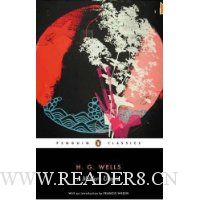
基本信息出版社:Penguin Classics
页码:320 页
出版日期:2006年04月
ISBN:0141441127
条形码:9780141441122
装帧:平装
开本:32开 Pages Per Sheet
正文语种:英语
丛书名:Penguin Classics
外文书名:现代乌托邦
内容简介 在线阅读本书
Book Description
Dissatisfied with the world around him, H G Wells seeks to attain a system of living and state of affairs rather more desirable - in short the ideal. But as he argues for sociological reform and an advance of the philosophical model, he finds that he has left the realms of the possible and entered the world of his imagination. For H G Wells, creator of time travel and a host of new and exotic societies, his ideal is a fusion of the philosophical and the imaginative. AUTHBIO: Known as the 'Father of Science Fiction', H G Wells was responsible for an entirely new genre of writing. It was his bold, daring and hugely innovative books that first introduced readers to the concepts of time travel, invisibility, genetic experimentation and interstellar invasion - ideas that have gone on to inspire future generations and given rise to the entire science fiction industry. Disturbingly accurate in his prophetic writing, H G Wells was also the author of a number of key sociological and historical works.
Synopsis
While walking in the Swiss Alps, two English travellers fall into a space-warp, and suddenly find themselves in another world. In many ways the same as our own - even down to the characters that inhabit it - this new planet is still somehow radically different, for the two walkers are now upon a Utopian Earth controlled by a single World Government. Here, as they soon learn, all share a common language, there is sexual, economic and racial equality, and society is ruled by socialist ideals enforced by an austere, voluntary elite: the Samurai'. But what will the Utopians make of these new visitors from a less perfect world?
Book Dimension
length: (cm)19.7 width:(cm)12.8
作者简介 HG Wells was born in Bromley, Kent in 1866. After working as a draper's apprentice and pupil-teacher, he won a scholarship to the Normal School of Science in 1884, studying under T H Huxley. He was awarded a first-class honours degree in biology and resumed teaching but had to retire after a kick from an ill-natured pupil afflicted his kidneys. He worked in poverty in London as a crammer while experimenting in journalism and stories. It was with The Time Machine (1895) that he had his real breakthrough.